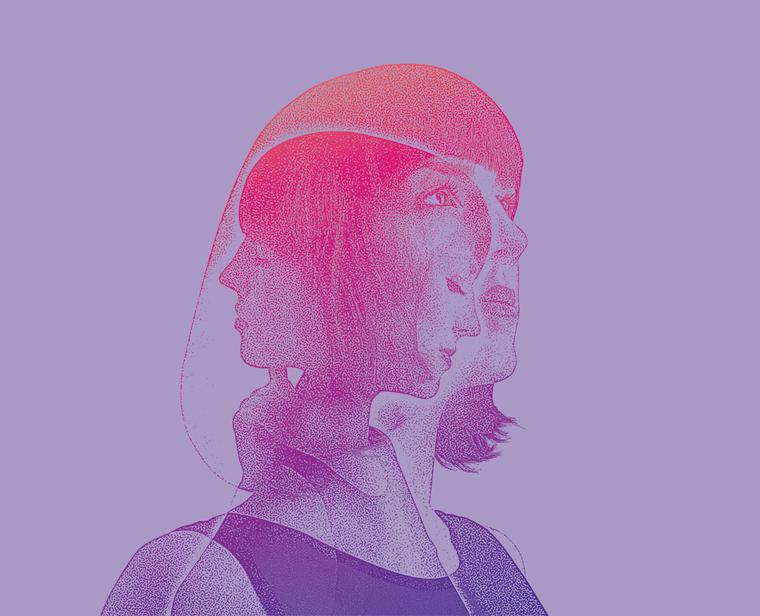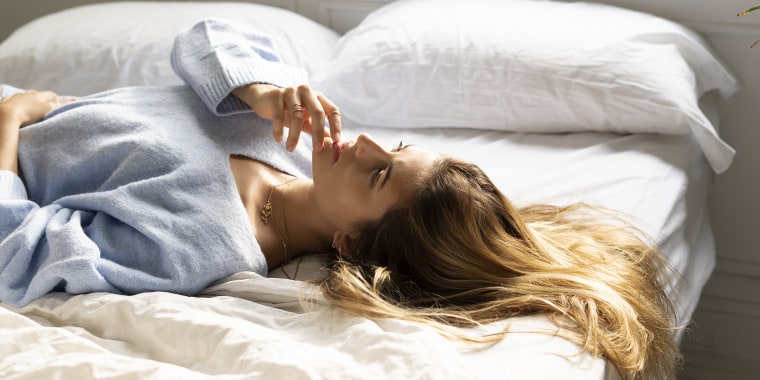Caroline Moss is an author and host of the podcast "Gee Thanks, Just Bought It,"which helps people find the products they need to make life easier, better and more productive. Now with this column, "Asking for a Friend," she'll help people with the advice they need to make life easier, better and more productive.
♥
Hi Caro,
I have been going to therapy for the last few years and I find it really helpful. That plus antidepressants have really helped me build some mental stability. I see my therapist once a week and together we explore some of my past issues around disordered eating and exercising. One of the things I learned from my time with my doctor is that I was using my control over what I ate and how much I worked out as a stand-in for all of the external things in my environment I had no control over. While I wouldn’t necessarily say I am in recovery for these issues, I have been making great strides in identifying the feelings that invoke my need for control using food and burning calories.
Now my environment has totally changed and I find myself falling back into the same patterns with eating and exercising that I was in before I started going to therapy. My therapist is offering tele-therapy over video chat but even that feels like too much of a departure.
I am worried that I am going to undo all of my work by the time this is over, and it will take me even longer to get back to where I am right now.
♥
Ugh. My heart hurts for you. I'm not an expert or a therapist, but I know you know you aren’t the only one struggling with this particular problem and I know how isolating issues with eating and exercising can feel. Add literal isolation to those feelings and I don’t blame you for feeling that lack of control creep back into your life.

Let’s start with the good: You have already done important mental work that would be impossible to undo, even if you did start giving into some old habits to help soothe yourself. You said that understanding the connection between your eating and exercising regimens and your need for control was something you learned during therapy. That means there was a time when you were obsessive about food and calorie burning but didn’t know why. The work that cannot be undone is your understanding the link between your actions and your feelings. You go into this global crisis armed with knowledge about yourself. You are not going to forget or unlearn that knowledge.
For more like this, follow TMRW on Instagram at @tmrwxtoday.
More good: You are keeping your therapy appointments and that’s great. Yes, they look different than they used to, and they probably feel different, too. I used to talk to my therapist over the phone if I was out of town for work and couldn’t make it to her office. It was helpful, but I, like you, always preferred the feeling I had when I was in the room with her, face-to-face. That’s not an option right now. This is the next best thing, and it’s only temporary.
Now the bad news: I’ve been on Instagram more than usual during isolation because what else am I going to do? I’ve been seeing everyone’s jokes — that this is the perfect time to get into “amazing shape” or that everyone’s going to come out of their homes in a few months having gained the “quarantine 15.” This keeps coming up over and over again because our culture profits off of us hating our bodies. It sucks. Stay off Instagram. Allow yourself 30 minutes of Instagram scrolling a day, then cut yourself off using the screen time settings on your phone.
We know that worrying about the size of our post-quarantine jeans isn't going to be the thing we remember most about living through a historic pandemic, but it doesn’t change the fact that we worry about it anyway. Try not to be too hard on yourself for caring about what you may consider to be frivolous things. Extend yourself a little grace.

You have all of the tools from therapy to keep up all of your good work. You do not have to be a more perfect eater because of the extenuating circumstances of our environment right now. You don’t have to work out twice as long as normal because you suddenly have more time on your hands.
You should keep going to therapy even if it’s over video chat. You should keep up your work on your relationship with food even if your usual eating habits have been disrupted. You can exercise because you like exercising and not because it’s a form of punishment for your eating behavior.
Mostly, you should remind yourself every day that therapy is teaching you to know who you are and how you operate. This is knowledge that can’t ever be erased. Who you were before this crisis is exactly who you are now. You’re just navigating through a totally unprecedented obstacle. We all are. None of us are going to do it perfectly. We’re all just going to do our best.
Take it one day and one meal at a time and know that this is not going to last forever.
If you or someone you know needs support managing disordered eating during this time, you can contact the National Eating Disorders Association helpline at 1-800-931-2237 or visit their digital support center here.



